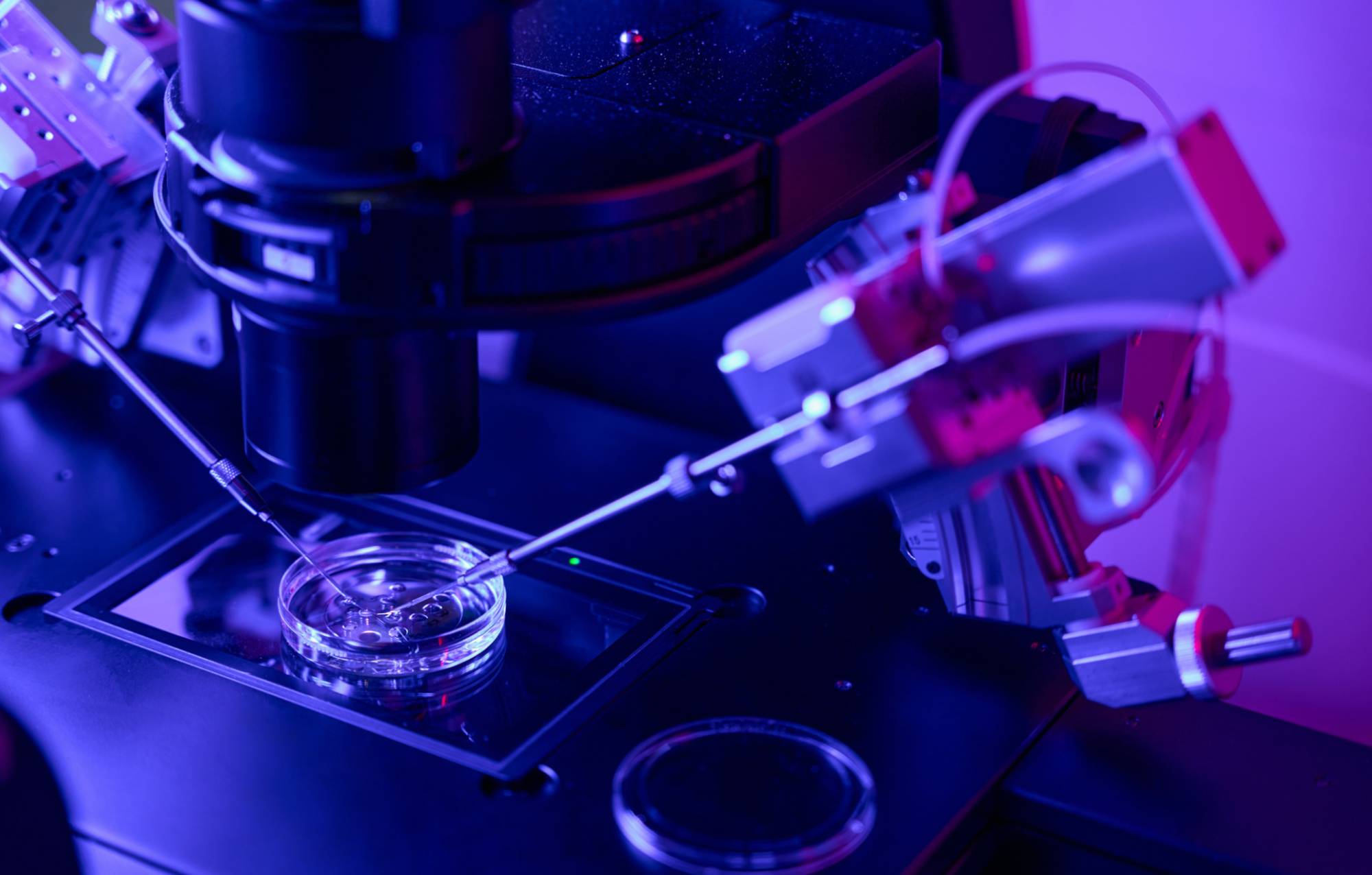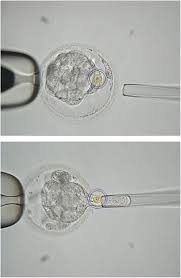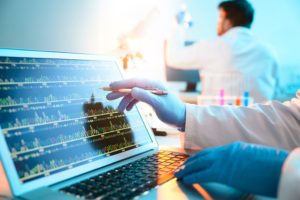Embryo Biopsy: Small Snippet, Big Impact – Innovations Changing the Future of IVF
In the world of IVF, sometimes the smallest steps hold the biggest potential. Embryo biopsy is precisely that – the delicate removal of a few cells from a developing embryo for genetic analysis. This powerful technique is what makes it possible to detect chromosomal issues and specific genetic diseases before an embryo is even transferred, revolutionizing the possibilities for couples facing infertility.
Think of it like a microscopic quality control check for the building blocks of life. But like any cutting-edge field, embryo biopsy is constantly evolving. Let’s dive into the latest innovations changing the game!
Innovation #1: Biopsy Gets a Gentler Touch
One of the biggest concerns about embryo biopsy is the potential for damage to the embryo. Here’s where things get exciting:
- Laser Power: Traditional biopsy techniques often use a laser to pierce the outer layer of the embryo. While lasers are precise, they can generate heat. Newer systems use sophisticated laser control to minimize unnecessary exposure, potentially reducing that risk.
- Blastocyst Focus: Many clinics are now leaning towards blastocyst biopsy (removing cells from a day-5 embryo). Blastocysts are more robust, and extracting a few cells from their outer layer is considered less invasive than doing a biopsy on a tiny day-3 embryo.
- Non-Invasive Alternatives: While still in the research phases, some scientists dream of ‘reading’ an embryo’s health by analyzing the fluid it’s bathed in. It’s a long way off, but imagine if we could do genetic screening without touching the embryo at all!
Innovation #2: Seeing More, Knowing More
Genetic testing technology is exploding with possibilities, and embryo biopsy benefits from this directly:
- Next-Generation Sequencing (NGS): NGS technology provides a much more detailed genetic picture than older methods. This means the ability to detect a wider range of chromosomal abnormalities and smaller gene mutations.
- Expanded Screening: While initially focused on severe diseases, testing can now include predispositions for late-onset conditions like certain cancers. This raises complex ethical questions but offers couples more information for family planning.
- Speed Matters: Getting genetic results quickly is critical for IVF patients eager to move forward. Some labs are streamlining testing processes for faster turnaround times, reducing the emotional rollercoaster waiting period.
Innovation #3: Tech Lends a Helping Hand
As with many medical fields, advanced technology is improving safety and precision in embryo biopsy:
- AI Enters the Lab: Artificial Intelligence (AI) software can analyze embryo images, even time-lapse videos, to identify the best spot for biopsy and potentially assess the overall health of the embryo. Think of it as a ‘smart assistant’ for the embryologist.
- Automation on the Rise: While embryologists will always need to be hands-on, some repetitive aspects of biopsy might be automated in the future. This could improve consistency, reduce error, and potentially even lower costs.
Innovation #4: Precision Tools for Delicate Procedures
The physical equipment used for embryo biopsy is crucial to achieving the best outcomes. Here’s what you need to keep in mind:
- Micromanipulation Advancements: The micromanipulators used to hold and manipulate embryos are now more precise than ever, allowing for more controlled movements and a gentler touch.
- Pipette Power: Biopsy pipettes are the tiny glass tubes used to suction out a few cells. Innovations in their design and manufacture ensure they are smooth and the perfect size for the task, minimizing embryo trauma.
- Beyond the Lab: Even the incubators where embryos are cultured before and after biopsy are seeing improvements. Stable temperatures and advanced air filtration systems create an ideal environment for their delicate development.
Who’s Making These Innovations Happen?
The world of embryo biopsy tech is a vibrant mix of established players and exciting new companies. Here are a few names to know:
- CooperSurgical: A major player in reproductive medicine, offering a range of biopsy products and genetic testing services.
- Illumina: A leader in DNA sequencing technology. Their NGS platforms are widely used for analyzing biopsied embryo cells.
- Igenomix: A specialized genetics company focused on reproductive health, known for their comprehensive preimplantation genetic screening services.
- Innovative companies and researchers: Keep an eye on smaller companies and university labs. That’s where groundbreaking ideas, like potential non-invasive biopsy methods, might emerge.
The Heart of the Matter: It’s About Choice
While all this tech is amazing, it’s crucial to remember embryo biopsy and genetic testing are deeply personal choices. The innovations we’ve discussed offer patients:
- Hope: For couples with a history of genetic disease, these tools offer the hope of having a healthy child.
- Knowledge: Detecting potential chromosomal issues may increase IVF success rates and reduce heartache.
- Tough Decisions: Genetic testing forces couples to confront complex ethical scenarios. Counseling and emotional support are vital.
Finding the Right Partners: FinDBest IVF for Embryo Biopsy Devices
Bringing these life-changing innovations to clinics worldwide requires a robust distribution network, and that’s where FinDBest IVF can help. Our platform is designed to connect manufacturers of embryo biopsy devices with the right distributors specializing in this niche area.
- Precision Search: Find qualified distributors based on geographic location, experience in handling sensitive equipment, and their focus on genetic testing solutions.
- Data for Success: Access key information about potential partners, like their existing product portfolios and clinic reach, empowering you to make informed decisions.
- Efficiency Matters: Accelerate your search process to ensure your cutting-edge devices reach the clinics and patients who need them most.
Ready to expand your global reach? Visit FinDBest IVF and partner with distributors who understand the power of embryo biopsy.








